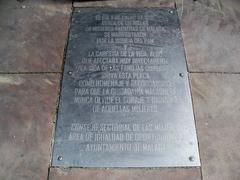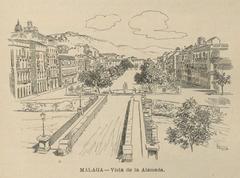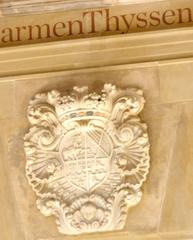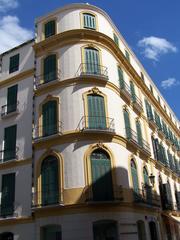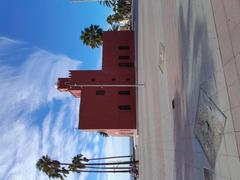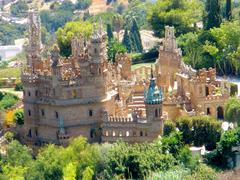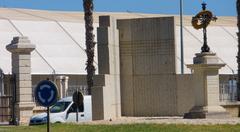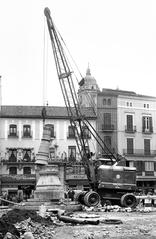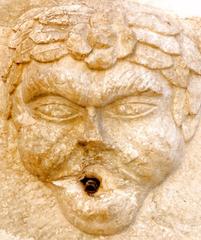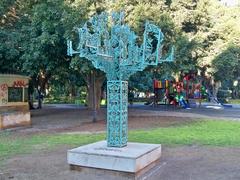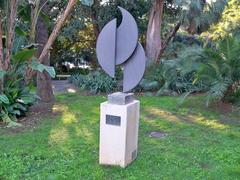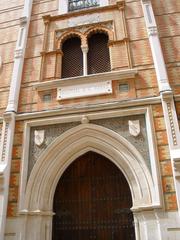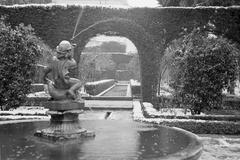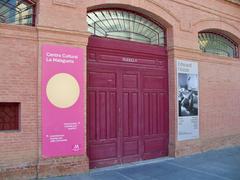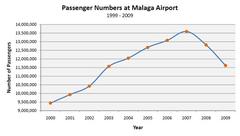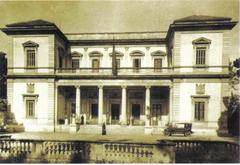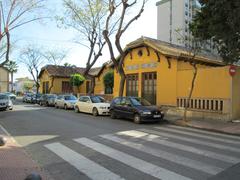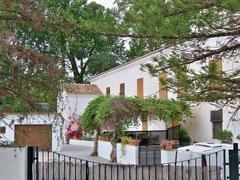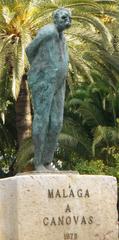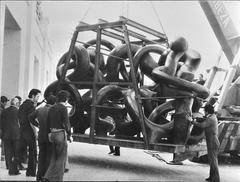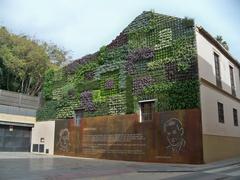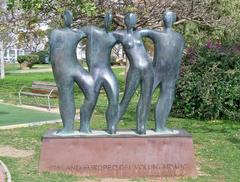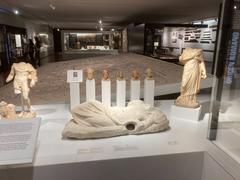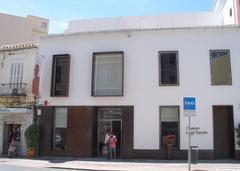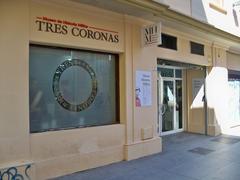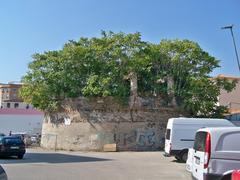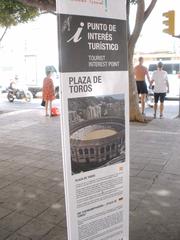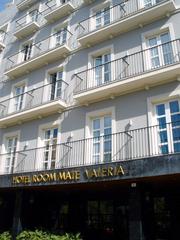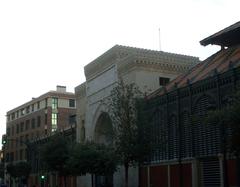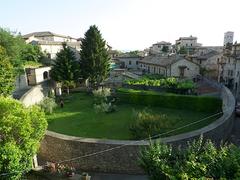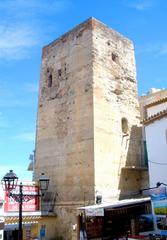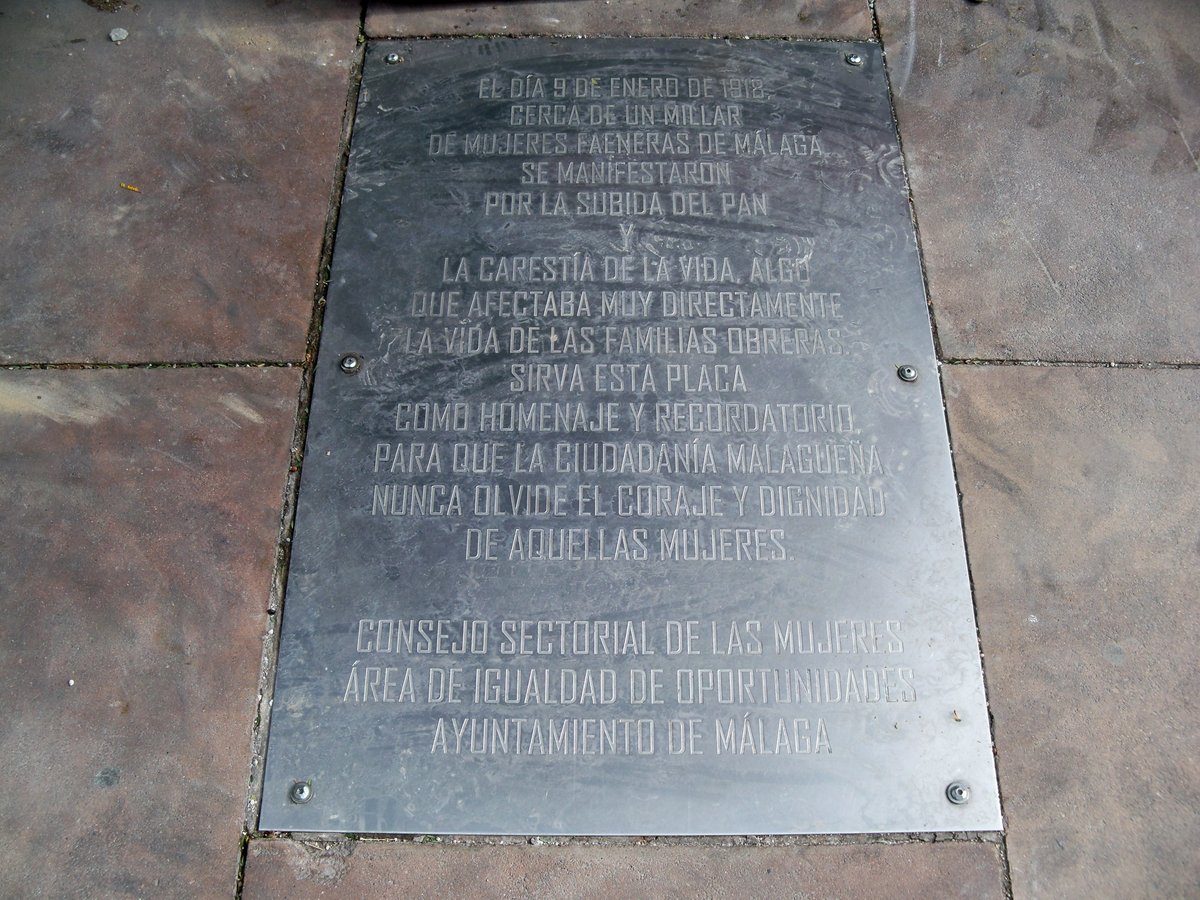
Visiting the Tribute To The Female Laborers in Málaga, Spain: Tickets, Hours, and Tips
Date: 14/06/2025
Introduction
The Tribute To The Female Laborers monument in Málaga, Spain, is a profound homage to the often-unrecognized contributions of women throughout the city’s history. Located near the vibrant Mercado de Atarazanas in Málaga’s historic center, this striking bronze sculpture honors generations of female workers—agricultural laborers, factory employees, market vendors, and domestic workers—who have shaped the city’s economic and social fabric since the 19th century. The monument stands not only as a testament to their resilience and dignity but also as a call for reflection on ongoing struggles for gender equality.
This comprehensive guide will provide you with historical context, practical visitor information (including hours, ticketing, and accessibility), tips for enriching your visit, and recommendations for nearby attractions. Whether you’re a history enthusiast, a cultural explorer, or a casual visitor, understanding the significance of this monument provides valuable insight into Málaga’s heritage and its ongoing journey toward inclusivity and social recognition.
For more information, refer to resources such as theinternationalreporter.com, Freetour Andalucía, and the Málaga City Council.
Historical Background and Monument Significance
The Evolution of Women’s Labor in Málaga
Málaga’s history is deeply intertwined with women’s labor, which has been pivotal in various sectors—agriculture, industry, domestic work, and, more recently, services and tourism. In the 19th and early 20th centuries, women’s work was primarily centered in rural settings (olive groves, vineyards, family farms) and in urban workshops and markets. Despite their crucial contributions, women often faced wage disparities, limited rights, and social restrictions, particularly during the Francoist era (1939–1975), when traditional gender roles were strictly enforced (theinternationalreporter.com; Wikipedia: Women in Spain).
Industrialization brought more women into factories, such as the iconic Tabacalera tobacco factory, where they worked in challenging conditions for low pay. The late 20th century and Spain’s democratic transition saw legal reforms and greater labor market participation by women, but issues like the gender pay gap, occupational segregation, and a disproportionate burden of unpaid work persist today (forbes.com).
Origins and Artistic Representation
The Tribute To The Female Laborers, also known as “Homenaje a las Faeneras,” was established to commemorate the enduring role of women in Málaga’s food markets and commercial life. The bronze monument, situated prominently outside the Mercado de Atarazanas, depicts women engaged in various forms of labor—carrying baskets, working in fields, and selling goods—reflecting their strength, diversity, and resilience (Andalusian Archives). Inscriptions and artistic details serve as a visual reclamation of public space for women’s stories, challenging traditional narratives and highlighting the essential role of female laborers in Málaga’s evolution (Moments Log).
Visitor Information: Location, Hours, Tickets, and Accessibility
Location and Setting
- Address: Calle Atarazanas, 10, 29005 Málaga, Spain
- Landmarks Nearby: Mercado de Atarazanas, Alameda Principal, Calle Marqués de Larios, Málaga Cathedral, Museo de Málaga
- Surroundings: The area is lively, with restaurants, shops, and major pedestrian routes nearby. The monument is easy to find and well-signposted (Wonderstays).
Visiting Hours & Admission
- Hours: The monument is outdoors and accessible 24/7, every day of the year.
- Tickets: There is no entrance fee. The monument is free to visit at any time.
- Market Hours: For those wishing to experience the monument alongside the Mercado de Atarazanas, the market is open Monday–Saturday, 8:00 AM–3:00 PM (Malaga.eu).
Accessibility
- Wheelchair Access: The area is step-free, with wide, smooth pavements and curb ramps.
- Public Transport: Multiple EMT Málaga bus lines stop at Alameda Principal (2–3 minutes away), and the Málaga Centro-Alameda train station is about 500 meters from the monument (EMT Málaga).
- Cyclist Access: Bike paths and public bike racks (MalagaBici) are nearby (MalagaBici).
- Parking: Nearby public garages include Parking Mercado Atarazanas, Parking Camas, and Parking Plaza de la Marina.
Multilingual Information
- While the monument’s inscriptions are in Spanish, tourist information nearby is available in English and other languages.
Guided Tours and Special Events
- Guided Tours: Many walking tours of Málaga’s historic center, especially those focused on social history or women’s heritage, include the Tribute To The Female Laborers (Freetour Andalucía).
- Events: The monument serves as a focal point for International Women’s Day (March 8) and local festivals, featuring public gatherings, performances, and exhibitions celebrating women’s contributions to Málaga.
- Educational Resources: Informational plaques and, in some cases, QR codes at the site provide additional context and links to further resources (Andalusian Archives).
Tips for Visiting
- Best Time to Visit: Mornings during market hours for lively atmosphere and best lighting for photography.
- Combine Your Visit: Explore nearby attractions—Alcazaba, Picasso Museum, Roman Theatre, and the Soho district.
- Visitor Etiquette: Be respectful, especially during commemorative events or when locals are paying tribute. Photography is allowed, but avoid disrupting market vendors or shoppers.
- Safety: The area is safe and well-trafficked, with amenities such as cafés, shops, ATMs, and pharmacies nearby.
Cultural and Social Impact
The Tribute To The Female Laborers is more than a monument—it is a living symbol of Málaga’s recognition of women’s vital, but historically underappreciated, contributions. It acts as an educational tool and a rallying point for community engagement, activism, and intergenerational dialogue. The site is used for workshops, advocacy, and social gatherings, and its influence has inspired similar initiatives across Andalusia, contributing to Spain’s broader movement for gender equality (The Olive Press).
The monument’s presence in the city center also counters the effects of gentrification and rapid tourism growth by anchoring Málaga’s identity in its authentic, lived history (BBC News). It complements the city’s vibrant street art and cultural scene, making Málaga’s urban space meaningful and inclusive.
Frequently Asked Questions (FAQ)
Q: Where is the Tribute To The Female Laborers monument located?
A: At the entrance of Mercado de Atarazanas, Calle Atarazanas, 10, 29005 Málaga.
Q: What are the opening hours?
A: The monument is outdoors and open 24 hours a day, every day.
Q: Is there an entrance fee?
A: No, visiting the monument is free.
Q: Are guided tours available?
A: Yes, many local operators include the monument in social history and women’s heritage tours.
Q: Is the site accessible for people with disabilities?
A: Yes, the area is wheelchair accessible with ramps and smooth pavements.
Q: Can I take photographs?
A: Yes, photography is encouraged—be considerate of others during your visit.
Q: Are there special events at the monument?
A: Yes, especially on International Women’s Day and during major local festivals.
Plan Your Visit
To make the most of your visit:
- Download the Audiala app for guided audio tours and insider tips.
- Check local tourism websites and social media for updates on special events and exhibitions.
- Share your experience and photos using #FaenerasMonumentMalaga to join the community celebrating Málaga’s female heritage.
For navigation, search “Homenaje a las Faeneras” or “Tribute to the Female Laborers” on Google Maps.
Conclusion
The Tribute To The Female Laborers is much more than a public art installation—it is a vital chapter in Málaga’s social history and a powerful statement of respect for the women who have sustained the city through generations of change. Accessible, centrally located, and surrounded by other notable attractions, the monument offers a meaningful experience for every visitor. By honoring both visible and invisible labor, Málaga demonstrates its commitment to recognition, inclusion, and ongoing social progress.
For further reading and in-depth guides, explore the following sources:
- The International Reporter
- Freetour Andalucía
- Moments Log
- Málaga City Council
- EMT Málaga
- Forbes
- Andalusian Archives
- Wikipedia: Women in Spain
- Wonderstays
- Faraway Worlds
